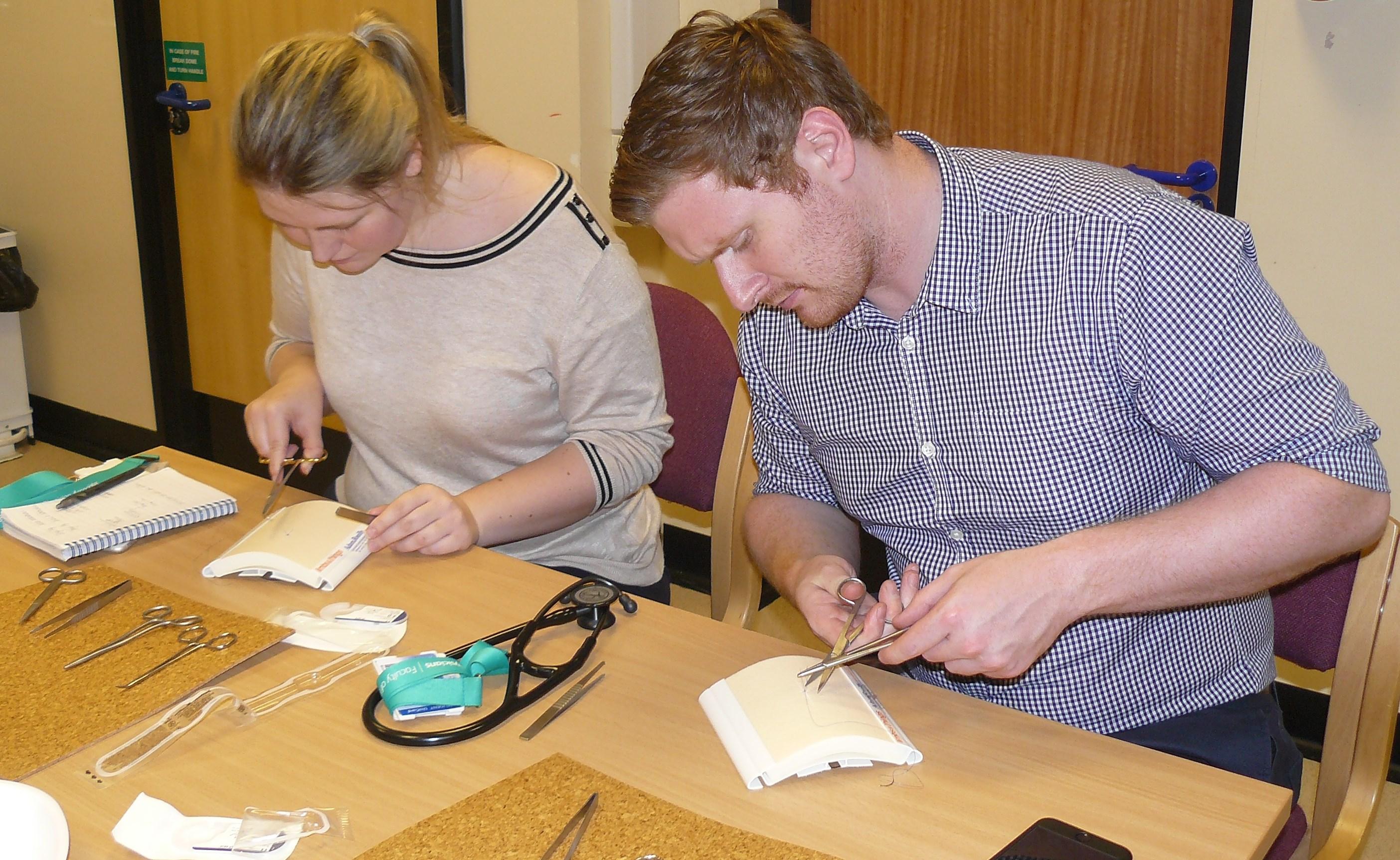
2 minute read
Dermatology
The Dermatology Department is based at the Brighton General Hospital and delivers outpatient services at local hospitals in Lewes, Peacehaven, Haywards Heath as well as the Royal Alexandra Children’s Hospital in Brighton.
The department provides about 12,000 consultations per annum, approx. 7,000 new patients are seen and 2,600 minor procedures conducted in the dermatology day-case theatres and minor treatment rooms. There is a weekly local and specialist skin cancer MDT meeting.
Advertisement
Inpatients are cared for in general medical beds at the Royal Sussex County Hospital. There is a weekly Consultant led ward round of dermatology inpatient referrals. There is no out of hours dermatology on call, but trainees have day time on call commitments when they are responsible for taking urgent referrals
from GPs and the hospital. The dermatology department runs specialist clinics for patients with skin cancer, psoriasis, hidradenitis suppurativa, immunobullous disorders, paediatric disease, vulval disease, hair disorders and leg ulceration as well as patch test and psychodermatology clinics. The department uses a teledermatology service for rapid lesion triage. The department’s facilities include operating theatres, treatment rooms and consultation suites and the department is fully integrated with plastic surgery. A phototherapy unit provides a full range of treatments including narrowband TLO1, PUVA treatment, and hand/foot PUVA. Other treatments available include Botox for hyperhidrosisis and Conventional and daylight PDT. Complex skin cancer surgery, including skin graft and flap repairs are performed under local anaesthetic by a team of plastic and dermatological surgeons.
DERMATOLOGY
Clinical photography is supported by the audio-visual department and medical photographers are available for some of the outpatient clinics. The department has a small library and six major dermatology journals are available for review.
The dermatology team is comprised of eight consultant dermatologists, two plastic surgeons, three specialist registrars, two clinical fellows and a core medical trainee. The specialist dermatology nursing service supports clinics including phototherapy, psoriasis and biologics clinics, wound care, iontophoresis, patch testing and community paediatric eczema clinics.
Teaching
Thursday afternoon specialist dermatology teaching rotates between the St John’s Society dermatology meeting ( 1st month), Pan Thames SpR training or South West Thames dermatology meeting ( 2nd Month) Section of dermatology meeting, Royal Society of medicine ( 3rd month) and local Brighton dermatology clinical governance and clinical cases meeting ( 4th Month). There is a weekly hospital physician’s grand round. Histopathology training is provided on a monthly basis.
Higher Specialty Trainees are involved in teaching medical students and postgraduate trainees, either informally in clinics, or by delivering lectures and interactive sessions at the hospital grand rounds or at the morning rounds.
They are encouraged to attend and present at national and international meetings, for example the British Association

of Dermatologists’ Annual Meeting, the European Academy of Dermatology and Venereology meetings, as well as the prestigious American Academy of Dermatology Annual Meeting.
Research
Trainees are encouraged to participate in audit and research projects. The department is involved in a number of industry and CLRN research studies.










